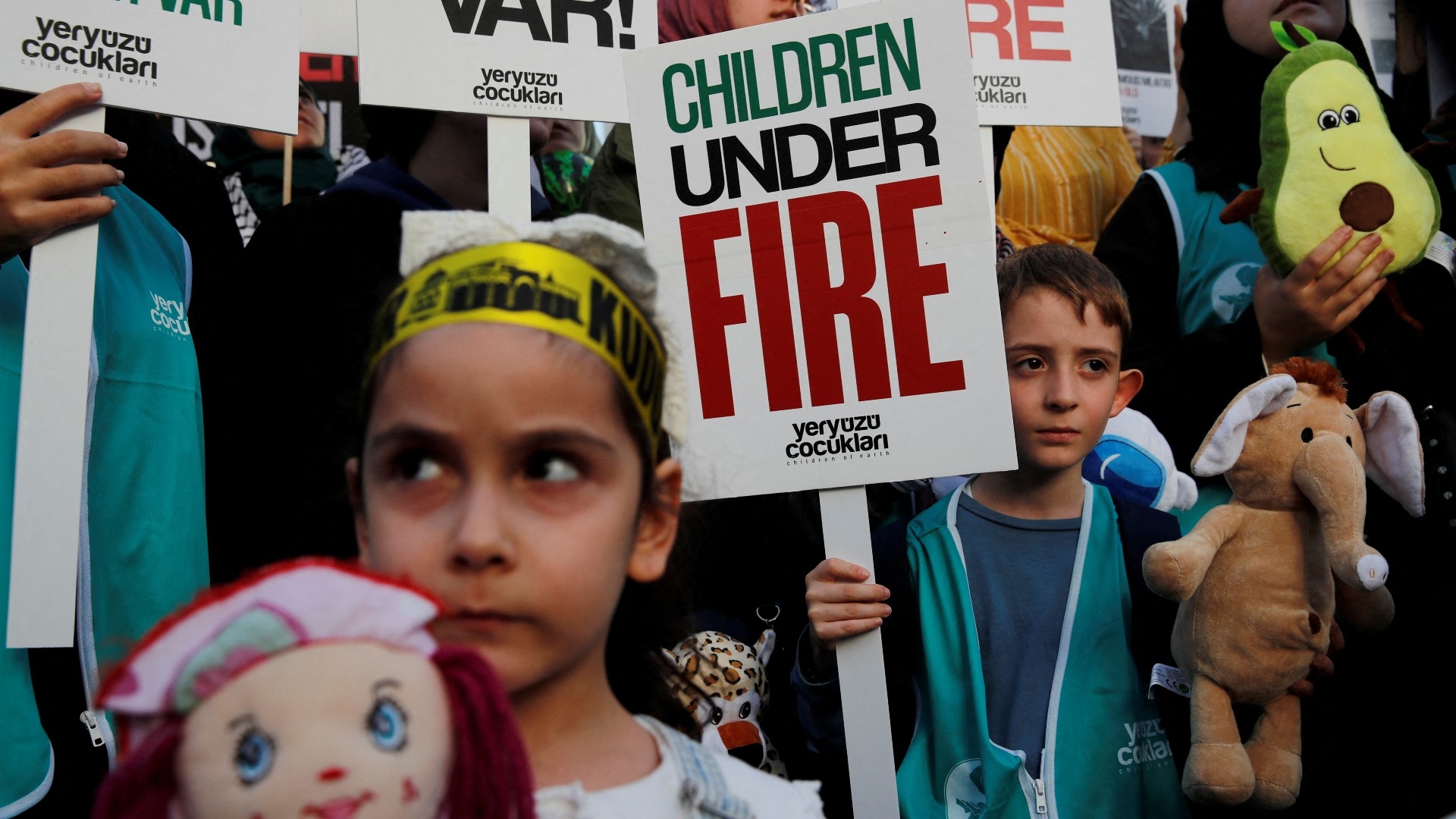Israel-Palestine war: Saudi Arabia plans to host a Gaza summit on Sunday, say sources

Saudi Arabia plans to host a summit of regional countries on Palestine on Sunday, aiming to unify pro-Palestinian states that ask for an immediate ceasefire, two people familiar with the issue told Middle East Eye.
The summit is planned to take place one day after Riyadh hosts an emergency Arab League foreign ministers meeting on Palestine.
On 7 October, a Hamas-led attack on Israeli communities near the Gaza Strip killed around 1,400 Israelis, the majority of them civilians, many children.
Since then, Israel has waged a fercious assault on the coastal enclave, killing more than 10,000 Palestinians, including over 4,000 children.
The Israeli military has levelled entire neighbourhoods, and continuously targeted hospitals, bakeries, civilian infrastructure, mosques and schools sheltering thousands of displaced people.
Stay informed with MEE's newsletters
Sign up to get the latest alerts, insights and analysis, starting with Turkey Unpacked
A person familiar with the Saudi plans to host a summit said that Islamic countries were divided, with some, such as Jordan, finding it hard to stand up to the United States and Israel due to their over dependence on western support. The US has given Israel major backing as it seeks to crush Hamas in Gaza by any means.
“Egypt’s Cairo Peace Summit last month was a good initiative to underline the importance of a ceasefire, but western states that attended the conference blocked every move to meaningfully oppose the Israeli attacks against the civilians,” the person added.
Adding to the picture is next month's Egyptian presidential election, where President Abdel Fattah el-Sisi will run for another term amid a stagnant economy and domestic woes that have even reportedly shaken the elite backing his rule.
“Sisi is in a tough position, he needs to show leadership on Gaza to attract votes, but also maintain his contacts with Washington and Israel for western economic support,” a second person said. “With Jordanian and Emirati hesitancy, it creates a void.”
Turkish President Recep Tayyip Erdogan has tried to fill that void with harsh statements against the US and Israeli leadership, describing Israel's military operations in Gaza as a “genocide”.
Follow Middle East Eye's live coverage for the latest on the Israel-Palestine war
On Friday, Erdogan said he was breaking off contact with Israeli Prime Minister Benjamin Netanyahu, but added this did not mean Turkey was severing relations with Israel.
"Netanyahu is no longer someone we can talk to. We have written him off," Turkish media quoted Erdogan as saying.
Both sources said Erdogan was likely to attend the summit, as Turkey also supported the idea.
“The Turks said they don’t need to take the stage for such a summit, they would support every initiative to bring out a unified stance on Palestine” the first person said.
The second source added that the Saudi leadership, despite its recent efforts to normalise ties with Israel, was willing to pressure the Israelis to act, and the summit on Sunday could be a way to show that.
The Saudi foreign ministry on Sunday strongly condemned an Israeli minister for suggesting a nuclear bomb could be dropped on Gaza, calling Israel an “occupation government”.
“Moreover, not dismissing the minister from the government immediately and only freezing his membership constitutes the utmost disregard for all human and religious morals values and legal norms by the Israeli government,” the statement added.
Separate official sources in Ankara told MEE that Turkey had been trying to push for an immediate ceasefire - as well as a deal that would see the 240 Israelis taken captive by Hamas on 7 October released in exchange for some or all of the nearly 6,000 Palestinians in Israeli jails.
Turkey, Saudi Arabia, Egypt and Qatar had been working closely to achieve that objective, they added.
Middle East Eye delivers independent and unrivalled coverage and analysis of the Middle East, North Africa and beyond. To learn more about republishing this content and the associated fees, please fill out this form. More about MEE can be found here.




